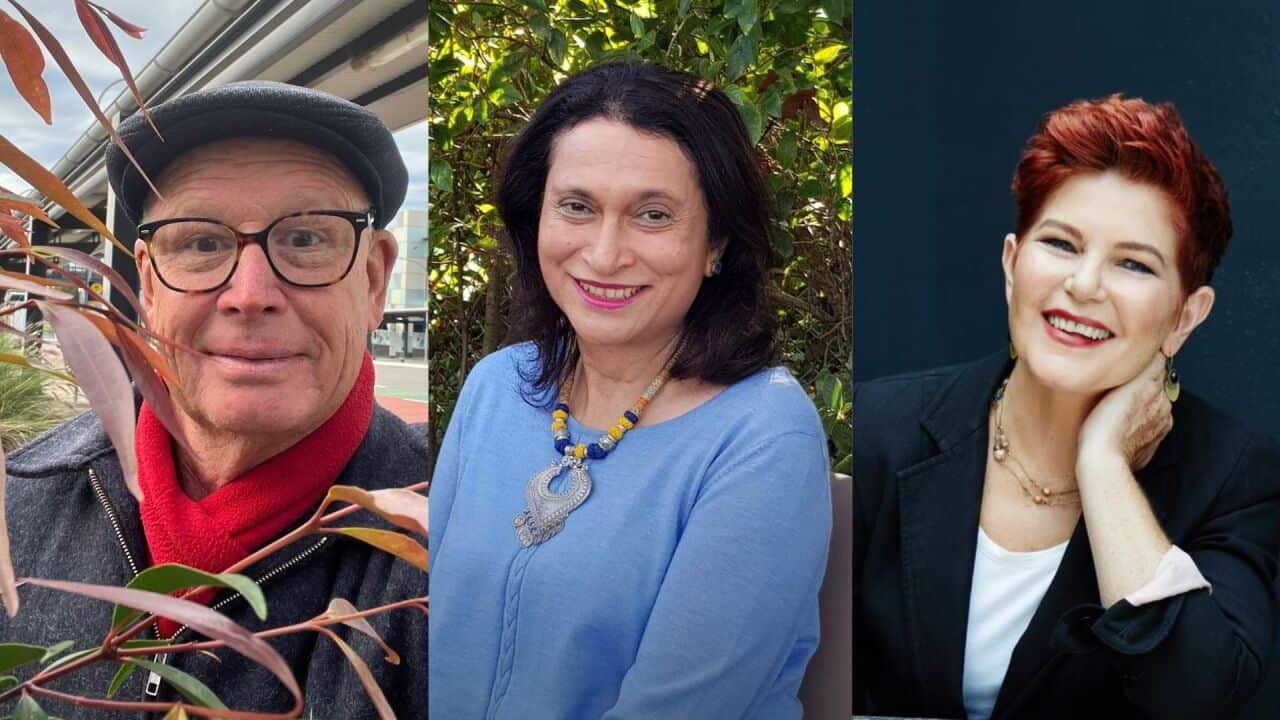What drives us to leave a legacy and what happens when we inherit a legacy we don’t want? Watch Insight episode Leaving a legacy on Tuesday at 8.30pm on SBS or on
Tim Pickles never planned to create a legacy, but his work now spreads across western Sydney and will likely outlive him.
The horticulturalist has secretly planted hundreds of trees in public places such as hospitals, carparks, schools and nature strips, all without permission, over the past 21 years.
“I love planting trees. And I love planting them in places where I think a tree should be,” Tim told Insight.
“Trees can make teachers want to teach at a school. Trees make people want to live in an area, in a suburb.”
It all started when Tim’s sons were born at Campbelltown Hospital more than two decades ago.
“I couldn’t believe how terrible the carpark looked … It had no trees planted in the gardens,” he said.
“I tried to get council to plant trees there. And then one day I just thought why don’t I go and plant trees there?
Tim Pickles is a horticulturalist who has secretly been planting hundreds of trees. Source: Supplied
The guerrilla gardener has made a rule of not telling people about the trees until they have grown tall, to avoid them being removed or damaged.
Tim said after planting trees at his children’s school, he received a call to say they planned to install a plaque recognising him.
“I told them don’t waste money on a plaque, just buy more trees,” he said.
Academic Patrick Stokes says legacies are parts of your life story that continue after death. Source: Supplied
How will you be remembered?
If you’ve ever thought about what people will remember about you after you’re gone, or what you’ll leave behind, that means you’ve thought about your legacy, says Patrick Stokes, an associate professor in philosophy at Deakin University.
He describes a legacy as parts of your life story that continue after you die. This can include anything from building a business empire to raising children so they’re going to be okay when you’re no longer around.
“It’s just the world being different in some way, because you were here,” he told Insight.
“I think that matters to us in a really important sense, because we want to feel that things we do actually do matter, and that they are going to actually continue to matter even if we’re no longer there.”
Stokes says there can be pressure on people to continue a cultural or genetic legacy, or a family name.
“We invest so much in the idea that we belong to some larger sort of thing.
“But it’s important to remember that we’re not just figures in one story. We belong to a whole bunch of larger things, not just to one particular family line, or one particular tradition, or one particular community,” he said.
Author Patti Miller runs writing workshops to help others write their life story. Source: Supplied
Writing your legacy as a form of healing
Author Patti Miller has published 10 books and runs workshops to help others write their own life stories. She says there are diverse reasons why people want to leave a written legacy.
“I think sometimes it’s for healing, that people have been through some kind of trauma or grief or difficulty in their life,” she said.
“But I also think it’s because there’s a lot of people in Australia from very many different cultural backgrounds, and their children and grandchildren don’t know what it was like to grow up in a Vietnamese village, for instance.
“So they want to hand on the stories so that their children and grandchildren know what life was like.”
Bindu Narula wants to capture her family’s story in words for her daughters. Source: Supplied
Written legacies as family heirlooms
Bindu Narula grew up in India until the age of seven. She took one of Patti’s workshops so she could capture her family’s story.
“When I first started writing, I was writing for my daughters,” she told Insight.
“Because I come from India, and I left 55 years ago, it occurred to me that there are so many things about my childhood that were going to die with me.
“It would be forgotten if I didn’t write about it.”
Miller believes future generations will treasure written legacies passed down through families.
“To me, it would be the greatest kind of family heirloom, to have a story from my 16-year-old, great, great, great grandmother, convict girl getting off the boat in Sydney. To have her story written down,” she said.
“I’m sure she couldn’t even read or write. But that would be a great heritage for me … It means something very personal.
“Because you know what that person was like, what they felt, what they thought about, what they understood. And it’s also about passing on wisdom.”
Who’s going to remember us?
At 91 years old, you’d think David Greatorex might also spend time pondering his legacy.
He’s spent decades in business and establishing his own philanthropic foundation, through which he’ll leave a lasting financial legacy that will be run by his children and maybe grandchildren.
But he says leaving a personal legacy has never crossed his mind.
“I’ve never even thought about it in personal terms,” he told Insight.
“It’s pretty easy to explain. The planet has been here for 4.2 billion years, homo sapiens have been here for 300,000 years.
“So who’s going to remember any of us in 150 years?”
And for more stories head to , hosted by Kumi Taguchi. From sex and relationships to health, wealth, and grief Insightful offers deeper dives into the lives and first-person stories of former guests from the acclaimed TV show, Insight.
Follow Insightful on the , , , or wherever you get your podcasts.




